Keywords: Christmas Islan
-
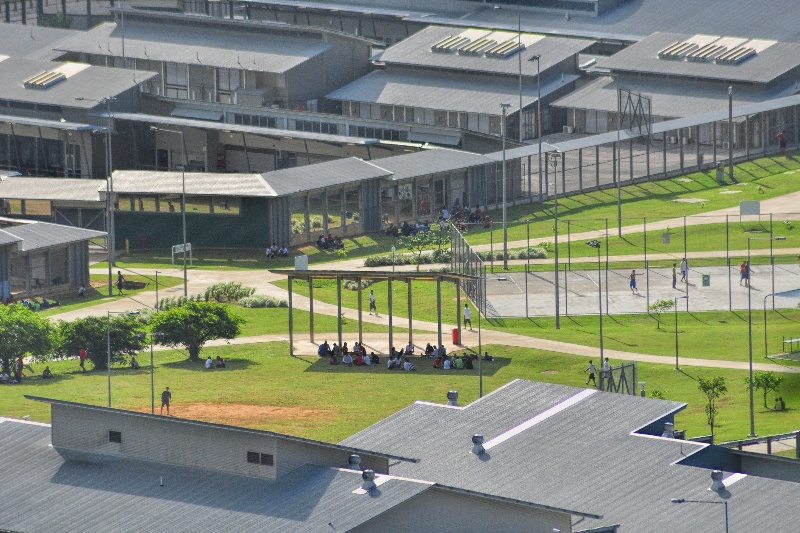
AUSTRALIA
- Farhad Bandesh
- 14 December 2022
3 Comments
My name is Farhad Bandesh. For seven-and-a-half years I was not called by my name. The Australian Federal Government took it away and changed my identity to a number. I was COA 060. I am Kurdish and we are a persecuted people.
READ MORE 
-
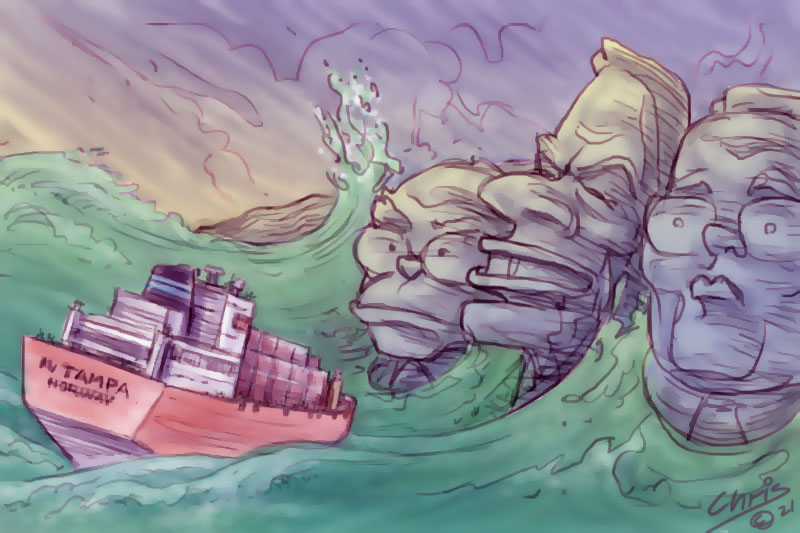
INTERNATIONAL
- Binoy Kampmark
- 07 September 2021
23 Comments
It took 438 desperate human beings upon the overladen wooden fishing boat, the KM Palapa, to present Australia’s Howard government in August 2001 with an electoral opportunity. At first, there was feigned ignorance from Canberra about any signs of desperation. The vessel, lacking power, lay some 100km off Christmas Island. Despite a coast guard plane noting men jumping up and down on the roof in a frenzy, nothing was initially done.
READ MORE 
-
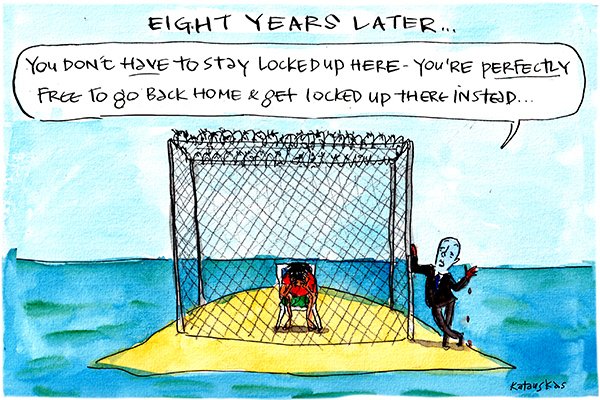
CARTOON
- Fiona Katauskas
- 21 July 2021
1 Comment
READ MORE 
-
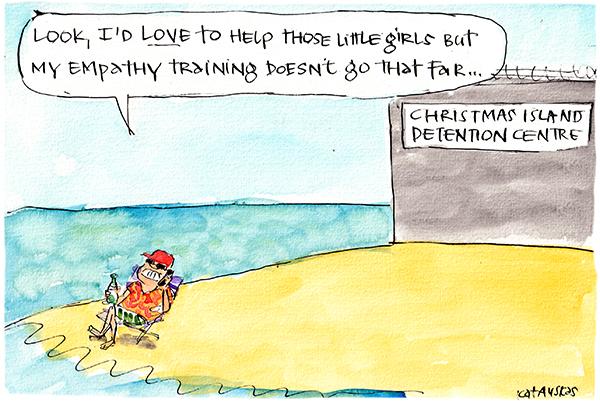
CARTOON
- Fiona Katauskas
- 08 June 2021
2 Comments
READ MORE 
-
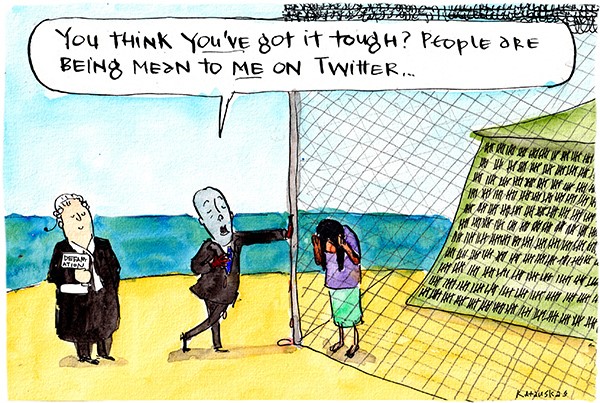
CARTOON
- Fiona Katauskas
- 27 April 2021
READ MORE 
-

AUSTRALIA
- Zaki Haidari
- 23 March 2021
9 Comments
I am a refugee from Afghanistan, and I belong a minority ethnic group, the Hazaras. We have been persecuted for a long time because of our ethnicity, religion and values. In 2012, I was forced to leave Afghanistan. I was 17. Back home, my father was a medical doctor. The Taliban accused him of working with international armed forces in the country at the time. One day the Taliban took him away, and nobody has seen him since.
READ MORE 
-
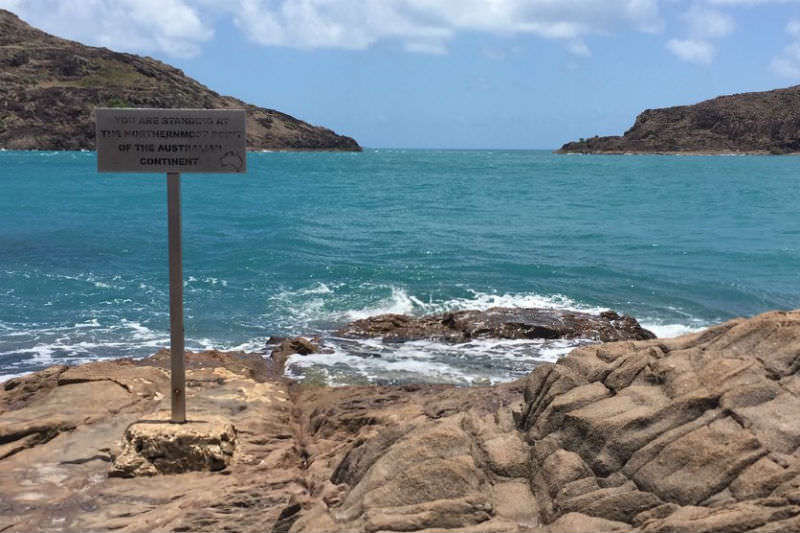
AUSTRALIA
- Catherine Marshall
- 17 October 2019
10 Comments
It's the final outpost, symbolically, demarcating Australia from its closest neighbour, PNG. The islands beyond it are a link to the cultures and geologies that lie to the north, giant stepping stones that guide Australia's Torres Straight Islanders home. For white Australians, they're the barrier marking the country's fiercely-held border.
READ MORE 
-
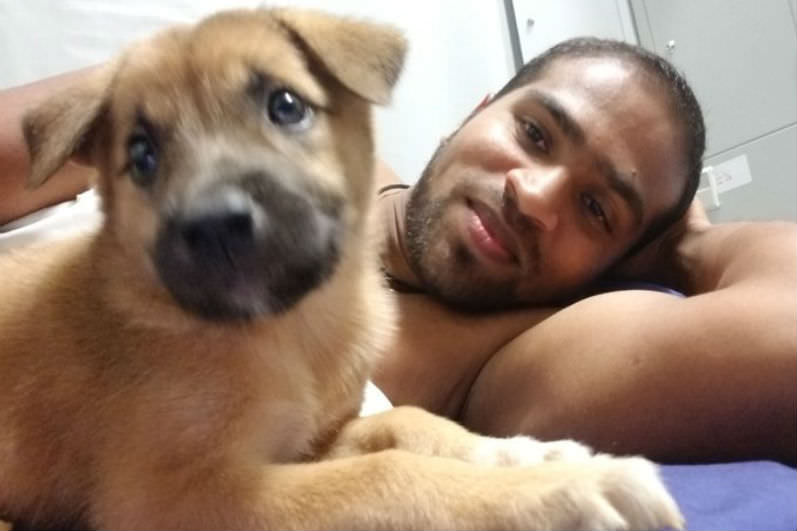
AUSTRALIA
- Meg Mundell
- 21 August 2019
8 Comments
If you're not burdened by a conscience, it's a perfect get-rich-quick scheme: offer 'garrison' services to governments reluctant to get their hands dirty. Ensure the vulnerable people you 'manage' are hidden, demonised by politicians and right-wing commentators. Hire cheap labour, minimise your tax, and make millions.
READ MORE 
-
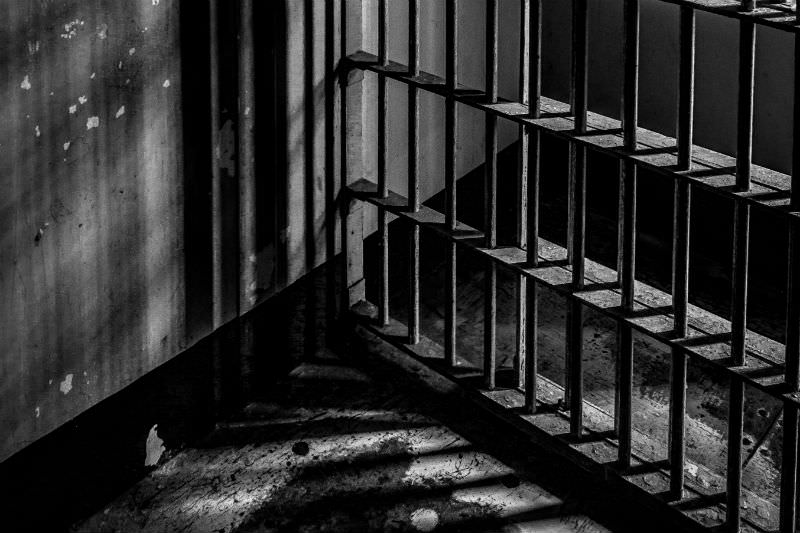
AUSTRALIA
- Katelyn Jones
- 19 July 2019
6 Comments
Intersectionality describes the experience of overlapping oppression faced by black women. Criminologist Chris Cuneen discusses the double jeopardy faced by Indigenous women in Australia who live under both colonialism and the patriarchy. Throw in capitalism and you get a sometimes-lethal triple threat.
READ MORE 
-
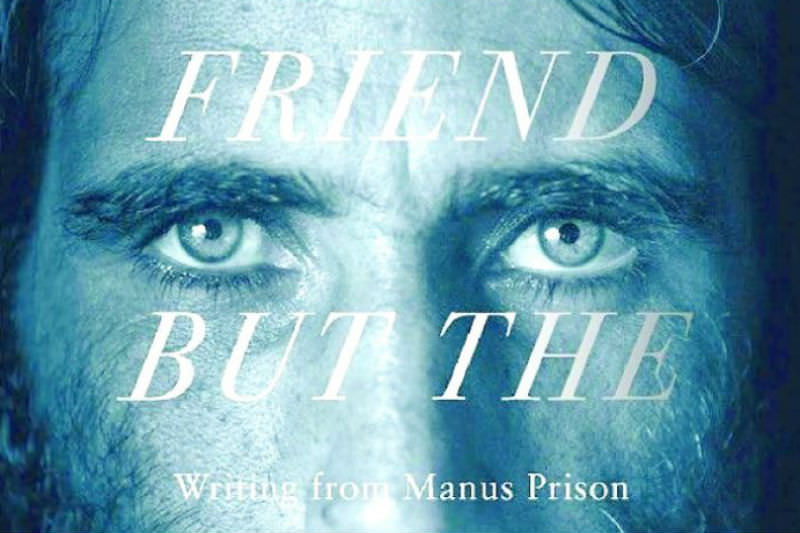
AUSTRALIA
- Andrew Hamilton
- 07 May 2019
10 Comments
No Friend But the Mountains deservedly won an Australian prize but was considered ineligible for others because the writer was not Australian. The book itself mocks that exclusion. Boochani's years on Manus Island branded him as Australian in the same way African slaves became American by the brand American owners burned on to them.
READ MORE 
-
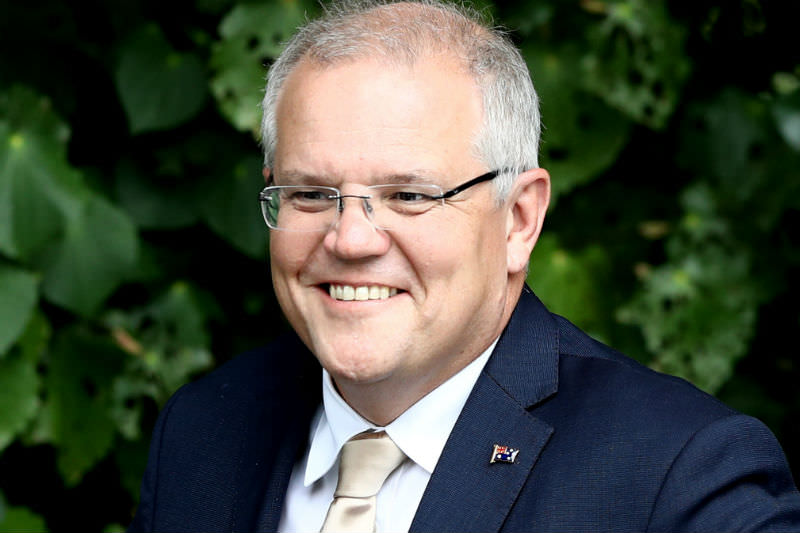
AUSTRALIA
- Andrew Hamilton
- 13 March 2019
11 Comments
The visit was clearly choreographed as part of the pre-election opera to draw public attention to the dramatic act of a strong leader who is prepared to stop boats and keep out asylum seekers. But it was supplanted even on the front page of the Coalition-friendly Australian by the story of a National Party insurgency in Queensland.
READ MORE 
-
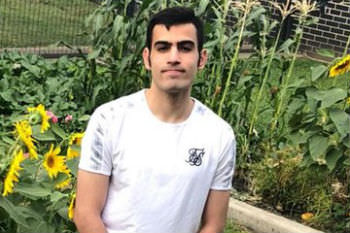
AUSTRALIA
- Shira Sebban
- 22 February 2019
5 Comments
A Faili Kurd, who fled Iran by boat aged 16 with his mother, Shalikhan has been detained since arriving on Christmas Island in August 2013. Suffering from a developmental disorder and mental health issues exacerbated by his father's death in Iran, he has in the past attempted suicide and displayed volatile behaviour.
READ MORE 